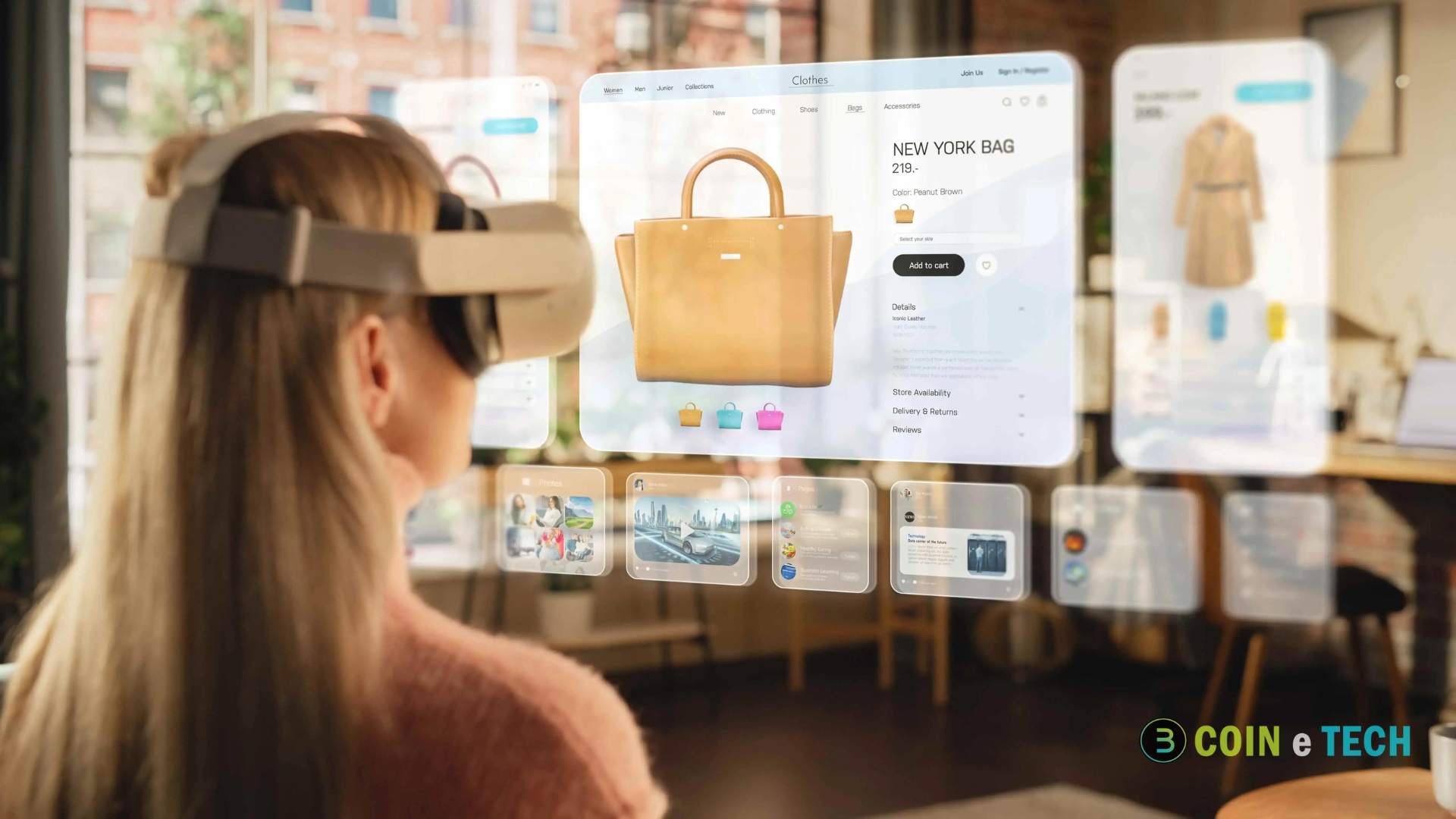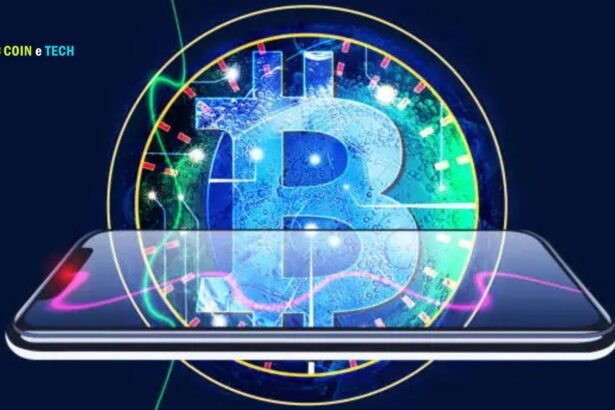Metaverse Virtual Commerce. In recent years, there has been a lot of buzz about the metaverse, a virtual reality area where people can engage with virtual worlds and each other. Thanks to recent technological developments, the metaverse is no longer just a theoretical concept; it is here to stay. The possibility for markets and business is one of the most exciting parts of this virtual world. Businesses now have a new method to interact with their clients in the metaverse. Metaverse virtual commerce and marketplaces are a new and exciting area of study, and this article looks at their history, present, and future to see what they could bring.
The Evolution of Virtual Commerce
Since its start, v-commerce, or virtual commerce, has substantially evolved. Both technology and user acceptance were obstacles to early efforts at virtual commerce. The terrain, however, has shifted considerably due to the introduction of sophisticated VR and AR technologies. This development’s logical step is the metaverse, an all-encompassing digital realm.
Early Virtual Worlds
Initially, virtual worlds such as Second Life and Habbo Hotel laid the metaverse’s foundation. Through these platforms, users could create avatars, communicate with other users, and engage in commercial activities. However, they were constrained by the technology available at the time. The transaction process was frequently laborious, and the user experience was not seamless.
Technological Advancements
The development of more advanced virtual and augmented reality technology has been a game-changer for virtual commerce. Graphics with a higher resolution, enhanced motion tracking, and user interfaces that are easier to understand have all contributed to the increased accessibility and immersion of virtual worlds. The proliferation of blockchain technology has also resulted in new opportunities for the secure conduct of transactions and the ownership of digital assets.
The Metaverse: A New Frontier for Commerce
The metaverse presents a new frontier for commercial activity, combining the most advantageous components of traditional and online retailing. In the metaverse, users can shop in virtual businesses, try on digital apparel, and even buy virtual real estate. This new method of conducting business has the potential to transform how we purchase and sell products and services completely.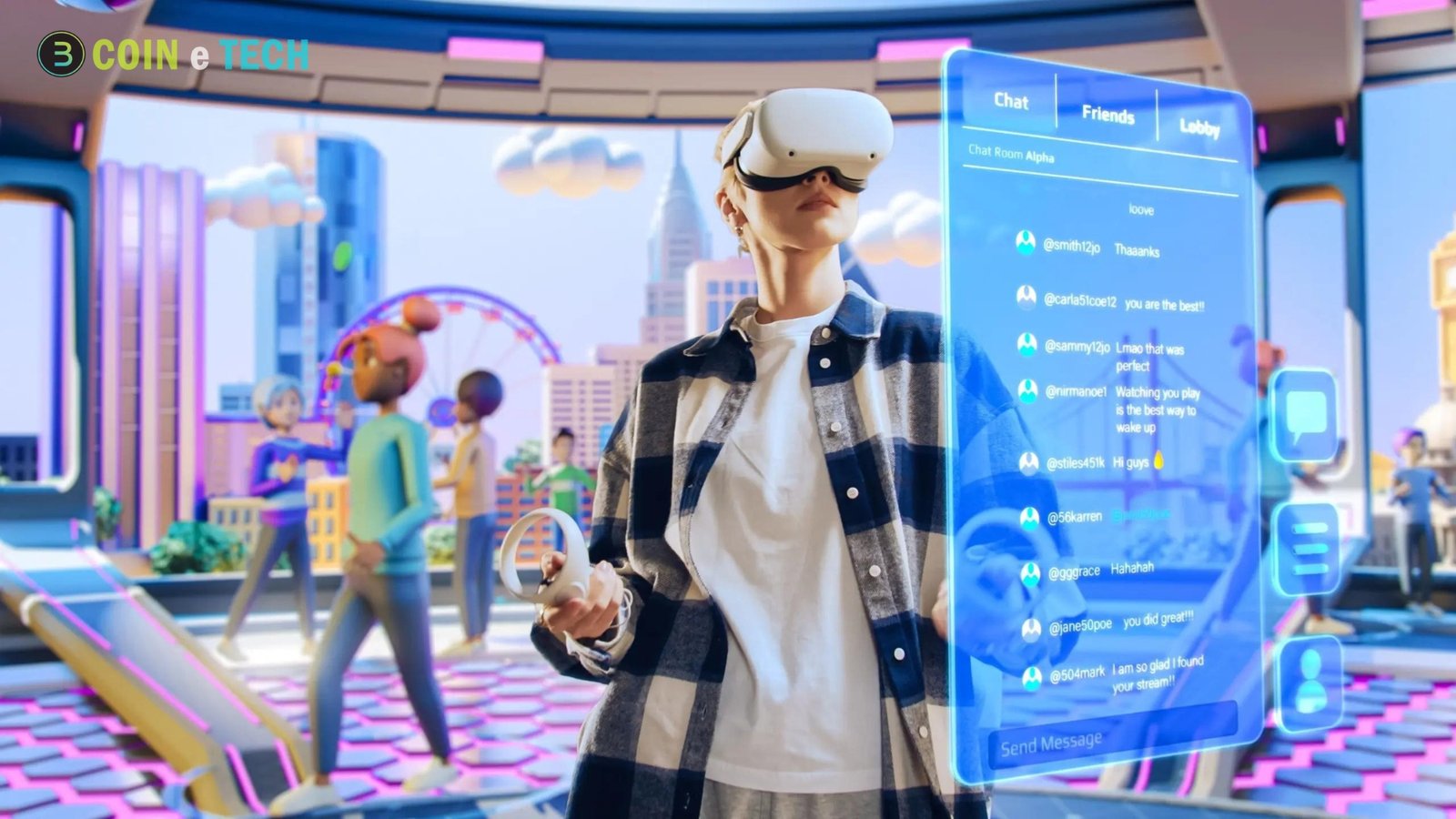
Virtual Stores and Showrooms
One of the most fascinating aspects of the metaverse is the possibility of establishing virtual showrooms and stores through its use. It is feasible for companies to develop completely immersive shopping experiences, allowing customers to investigate things in a manner that is not available in conventional online storefronts. As an illustration, a fashion firm may establish an online store where clients may virtually try on digital copies of various articles of apparel and accessories. Because of this, not only is the shopping experience improved, but there is also a decreased requirement for physical inventory.
Digital Goods and NFTs
Regarding the economy of the metaverse, digital commodities and non-fungible tokens (NFTs) are extremely important components. Non-fungible tokens (NFTs) are one-of-a-kind digital assets that can be used to represent anything from digital art to virtual clothes. These assets are bought and sold on marketplaces built on blockchain technology, guaranteeing that the transactions are secure and transparent. There has been a meteoric rise in the popularity of non-fungible tokens (NFTs) over the past few years, with musicians, companies, and artists all exploring this new kind of digital ownership.
Virtual Real Estate
In the metaverse, virtual real estate is another market experiencing rapid growth. In the same way that location and exclusivity may drive up the value of real estate, they can also drive up the value of virtual properties. Additionally, users can rent out space for events or adverts, acquire virtual land, and construct their unique habitats. Realizing that virtual real estate has the potential to become a new source of revenue, many corporations have already begun investing in it.
The Economics of the Metaverse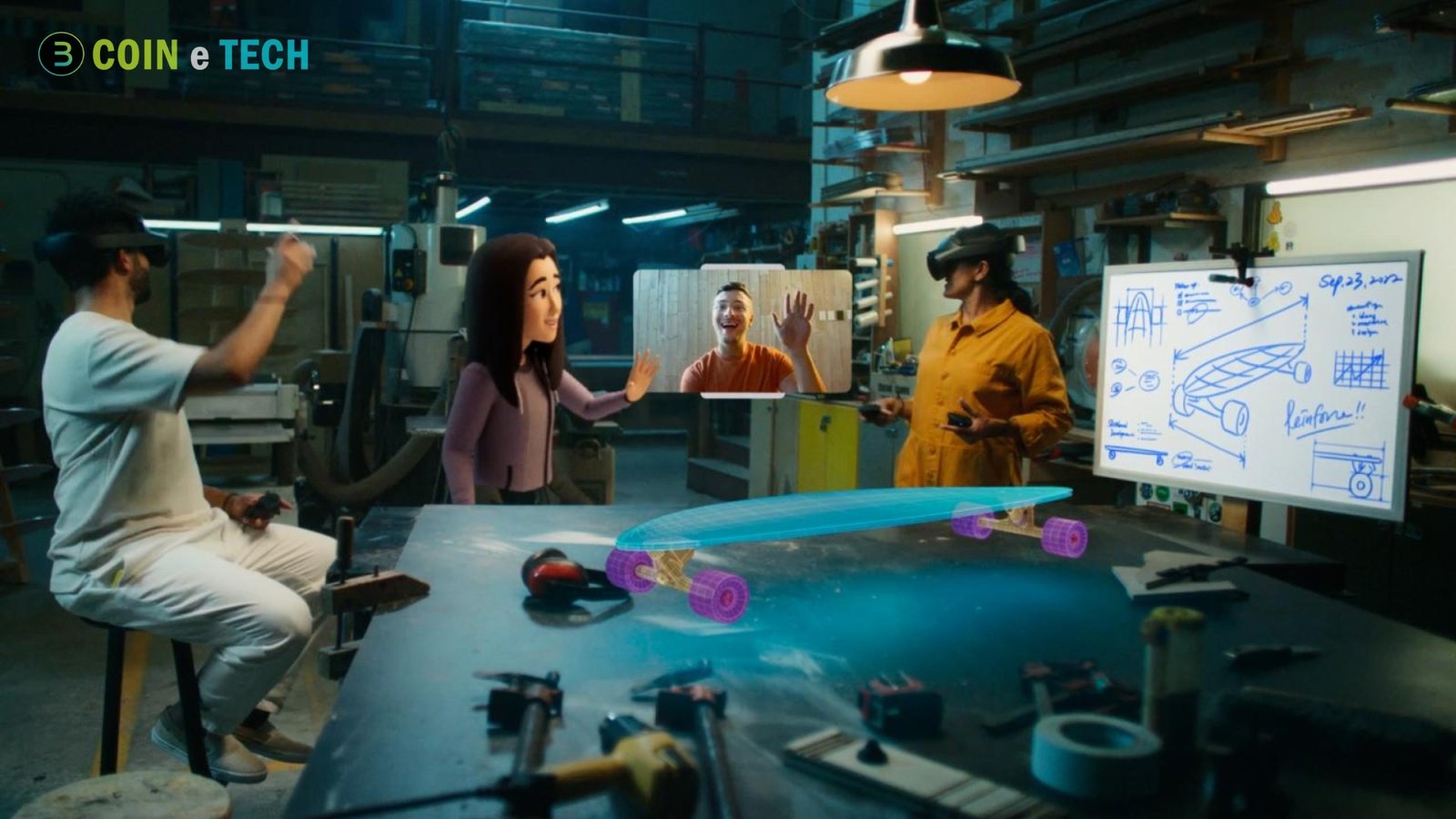
The metaverse introduces new economic models, combining conventional business practices with cutting-edge digital ideas. Companies interested in capitalizing on this new frontier must have a solid understanding of these economics.
Cryptocurrency and Digital Payments
Cryptocurrency supports the economy of the metaverse to a large extent. Digital currencies such as Bitcoin and Ethereum, as well as specific tokens such as Decentraland’s MANA, are utilized for transactions. These currencies provide a decentralized and secure method of handling payments, eliminating the intermediary requirement and reducing transaction expenses.
Play-to-Earn Models
Models that allow users to make money through play have become increasingly popular in the metaverse, particularly in gaming environments. Through participation in virtual activities, users can acquire digital assets, which may then be bought or sold on the marketplace. Implementing this paradigm not only encourages participation but also generates a thriving economy within the realm of virtual reality.
Economic Opportunities for Businesses
Enterprises can use the metaverse to create a plethora of opportunities. Businesses can create virtual stores, host events, and develop branded virtual experiences. When it is possible to communicate with people worldwide in an immersive setting, new opportunities for marketing and sales are created.
Challenges and Considerations
Although the potential for virtual business in the metaverse is enormous, substantial problems must be solved.
Technical Challenges
Much technological competence is required to create a smooth and immersive metaverse experience. High-quality graphics, interactions with low latency, and substantial security measures are necessary. Ensuring a consistent user experience is essential further to emphasize the importance of interoperability between various virtual worlds.
Legal and Regulatory Issues
The legal and regulatory environment surrounding the metaverse is developing. Several concerns must be addressed, including consumer protection, intellectual property rights, and digital platform control. Governments and regulatory agencies must devise new regulatory frameworks to regulate online businesses effectively.
User Adoption
Widespread user acceptance is necessary for the metaverse’s success. Elderly users may resist virtual worlds even though younger generations are more likely to accept them. Education and user-friendly interfaces will drive effective adoption across all demographics.
Case Studies: Pioneers in Metaverse Commerce
Several businesses are already leading the way in virtual trade within the metaverse. These case studies shed light on this sector’s enormous potential and innovative activity.
Decentraland
The Ethereum blockchain is the foundation for the decentralized virtual world known as Decentraland. In addition to designing surroundings and exchanging digital assets, users may acquire virtual land. The platform has become a central location for virtual casinos, art galleries, and even virtual events. The marketplace in Decentraland enables users to buy and sell non-fungible tokens (NFTs), contributing to the digital economy’s growth.
Roblox
Roblox is a well-known online platform that allows users to build and share their games. The business has taken the idea of the metaverse to heart. It has developed a digital environment in which users can interact with one another, engage in gameplay, and shop. Several well-known brands, including Gucci and Nike, have opened virtual stores on Roblox, selling exclusive digital merchandise. Robux, the platform’s in-game currency, makes it easier for users to conduct transactions and allows them to monetize their work.
Fortnite
One such example of a popular metaverse platform is Fortnite, built through Epic Games. Fortnite, which was once a game of battle royale, has developed into a virtual space that can be used for events such as concerts, movie screenings, and brand collaborations. The virtual currency of the game is called V-Bucks, and it is used to purchase digital products. Players can also participate in events to gain exclusive stuff by participating in those events.
The Future of Metaverse Commerce
The future of trade in the metaverse is bright, with many opportunities for developing new ideas and expanding existing ones. As technology improves, the distinction between the digital and physical worlds will become increasingly blurry, creating new opportunities for consumers and enterprises.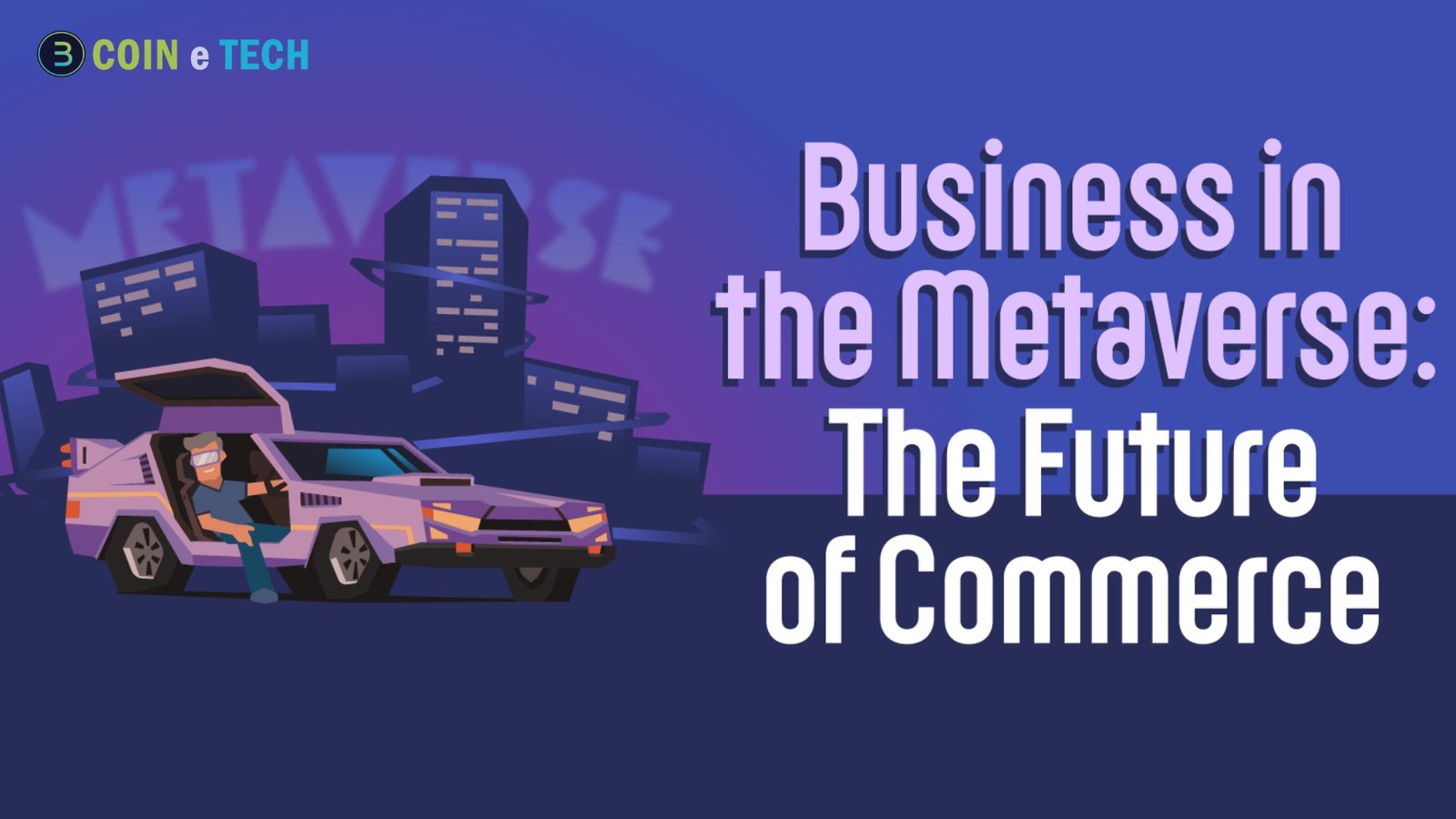
Integration with Augmented Reality
The future of the metaverse will be significantly impacted by augmented reality (AR), which will play a significant job. The ability of augmented reality technologies to superimpose digital information onto the real world can make virtual experiences more enjoyable. A seamless integration of digital and physical commerce might be achieved by employing this technology, enabling consumers to interact with virtual products in their actual environments.
Enhanced Personalization
A significant factor that will fuel trade in the metaverse is personalization. Advanced algorithms and artificial intelligence can personalize virtual experiences for each user by providing unique recommendations and surroundings tailored to their preferences. This level of customization has the potential to boost client satisfaction and, hence, increase revenue.
Expansion of Virtual Economies
Virtual economies will continue to grow regardless of the number of users and enterprises that enter the metaverse. New digital goods, services, and experiences will emerge, creating a dynamic and ever-changing market. In terms of scale and impact, the metaverse has the potential to become a major economic force that can compete with traditional industries.
Conclusion
In virtual trade and marketplaces, the metaverse represents a cutting-edge new frontier. The metaverse presents businesses and customers with chances that have never been seen before for various reasons, including its immersive settings, cutting-edge technologies, and creative economic models. Even though there are obstacles to be conquered, there is a tremendous opportunity for expansion and innovation. As time passes, the metaverse will continue transforming how we purchase, sell, and interact with digital goods and services, thereby ushering in a new era of virtual commerce.

